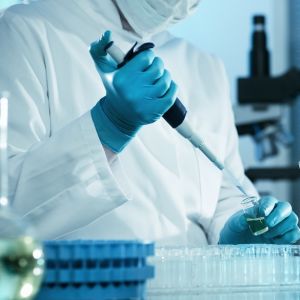What is Antimicrobial Efficacy Test? How Is It Conducted?
Posted by Anthony Lewis on January 27th, 2021
Antimicrobial Efficacy Test is conducted to determine if the presence of antimicrobials in sterile or nonsterile multi-dose aqueous products can prevent the multiplication of microorganisms. The test entails adding a certain number of microorganisms to the product and conducting tests at regular intervals to determine the number of microorganisms remain in it.
At Biosan Laboratories, a Michigan-based microbiology testing laboratory, we conduct Antimicrobial Efficacy Tests on construction materials, industrial fluids, inks, paints, plastics, and textiles. In this blog post, we discuss everything about an antimicrobial efficacy test.
What is antimicrobial?
An antimicrobial is a chemical agent that inhibits the growth of microorganisms or kills them completely. It is alternatively known as preservative. Common antimicrobials used in commercial durables are alcohols, parabens, and quaternary ammonium compounds.
What are the methods for conducting AET?
There are numerous methods available for conducting Antimicrobial Efficacy Tests. They are listed below:
• USP <51> Antimicrobial Effectiveness Testing
• ISO 11930 – Evaluation of the Antimicrobial Protection of a Cosmetic Product
• Personal Care Products Council Methods M-3 to M-7
• EP 5.1.3 Efficacy of Antimicrobial Preservation
• CTFA Preservative Challenge Testing
Requirements for conducting an effective AET
Whenever you are planning to get an Antimicrobial Efficacy Test done, check with the laboratory whether or not they have the following requirements in place.
• Review the SOP: Before starting an AET, review your laboratory procedure for the test. Check whether or not they have all the supplies that will be required for the procedure.
• Check equipment: Check if the laboratory has the necessary equipment including incubators, pipettes, thermometers, and if applicable, densitometers or spectrophotometers. And also check if the calibration, maintenance, and performance verification of the equipment is done. Check the controls’ expiration date.
• Make sure the media used by the laboratory can support microbial growth: It is mandatory for new media to pass the growth promotion test before it is used in an AET. Ensure that the laboratory use only those media that are previously tested and approved by the United States Pharmacopeia (USP).
• Ensure that the team is well-trained and experienced: In an AET, a small error can cause huge damages and can cause the test to fail. So, before choosing a laboratory for an AET, make sure the team as well as the support staff are well-trained and have prior experience.
• Insist on testing additional strains: Before starting with an AET, insist the laboratory on conducting additional tests to determine the presence of another strain or in-house isolates that may contaminate your products. A good and reliable laboratory will always be more than willing to test for additional species to ensure that your products are in safe hands.
• Ask the laboratory to conduct method suitability tests: Before starting with an AET, ask the laboratory to perform a method suitability test. The intention behind conducting the test is to confirm that if microorganisms are present, they can be recovered from the product.
The above points can help you while you are getting Antimicrobial Efficacy Testing done. Our antimicrobial testing laboratory can assist you with choosing the correct test method for your project as well as develop test protocols tailored to your specific requirements. Our microbiologists specialize in ASTM, AATCC, JIS, and ISO standard antimicrobial test methods.
With more than four decades of laboratory experience in testing antimicrobials, biocides, and preservatives, we offer all relevant information of AET and great customer experience as well as customer service. Trust your antimicrobial testing to the team of microbiologists at Biosan Laboratories. Contact us to discuss specifics with our team of expert microbiologists or ask for a free quote.
About Author:
Anthony Lewis is a professional writer having deep interest in scientific innovations. In addition, he has been imparting training on personality development in various institutes as guest faculty. For over three years, Lewis has been penning informative pieces on Microbiological testing laboratory and bacteria test kit of Biosan Laboratories Inc.


